- Home
- Madeleine L'engle
A Live Coal in the Sea
A Live Coal in the Sea Read online
EARLY BIRD BOOKS
FRESH EBOOK DEALS, DELIVERED DAILY
BE THE FIRST TO KNOW—
NEW DEALS HATCH EVERY DAY!
A Live Coal in the Sea
A Novel
Madeleine L’Engle
ONE
The reception was held in the president’s house. Camilla was seated in a large wing chair by the windows which looked out to a lake, around three sides of which the college buildings were scattered, red brick, white clapboard, grey stone, a casual architectural mix which had an unexpectedly pleasing effect.
Champagne was uncorked. Fruit punch and ginger ale were offered. White-aproned college students served hors d’oeuvres. The large room was filled with Camilla’s colleagues, friends, students. Her family. One of the young girls, offering her a tray of smoked salmon, whispered, “We’re really proud of you, Dr. Dickinson.”
The award ceremony had been held in Hiram B. Hingham Hall, Camilla standing on the stage to receive the Maria Mitchell Medal for distinguished work in astronomy. For a modest little medal, she thought, the college was treating it like the Nobel Prize. She was, nevertheless, pleased.
Her children were there. Taxi had driven up from New York, warning her that he would have to leave early. He was the star of a soap opera and would be taping at seven in the morning. He stood beside the president of the college, shorter, but equally distinguished in his tux, and certainly arresting with his black hair and fair skin and always an aura of excitement in the way he carried his body, looked around him, as though expecting something to happen, either marvelous or terrible, one could not be sure. Thessaly, his wife, was obviously happy and excited, arm in arm with Frankie—Frances—Camilla’s daughter, who had flown in from Seattle for the occasion. Light from the crystal chandeliers highlighted Thessaly’s sleek chestnut hair, pulled back from her face and into a neat roll as she had worn it when she was a dancer. Frankie’s hair, dark like Taxi’s, was beginning to be streaked with white, but she was a handsome woman, Camilla thought, taller than Taxi or Thessaly, but carrying herself well.
Raffi, Camilla’s beloved granddaughter, Taxi and Thessaly’s daughter, was a freshman in the college, delighted at all the attention being paid to her grandmother.
Camilla looked around the crowded room. It was time to stop sitting like an elderly dowager duchess in the chair the president had led her to. She stood up, champagne glass in hand, so that she could talk more easily with the guests.
Taxi, moving with as much grace as his wife, though he had never done any professional dancing, came over to his mother, along with a white-bearded man who was chairman of the physics department. Camilla introduced them, and the physics professor shook Taxi’s hand, saying, “It seems that a number of the students are quite excited by your presence.” He sounded interested, but puzzled.
“Taxi is an actor,” Camilla said.
Taxi shrugged gracefully. “I’m presently in a soap.”
“A what?”
Taxi smiled. “A soap opera—daytime television. College students manage to watch it, though I doubt if the eminent professors do.”
The professor laughed. “No, I’m afraid we don’t. My wife and I occasionally get in to New York to the theatre.”
Camilla said, “Taxi often does plays, too. There was one that opened early in the season—”
“And immediately flopped,” Taxi said. “It was a terrific show, really, but the critics simply didn’t get it.”
“Well, better luck next time.” The professor moved off to join a group of colleagues.
Taxi said in a low voice, “Mom, you really didn’t need to mention that disaster.”
“Sorry, Tax. You were wonderful in it.”
“The critics didn’t give me much credit. I haven’t had a hit in two years.” He glanced around to where his daughter was standing with a group of girls. “How’s my Raffi getting along?”
“She’s doing beautifully. Several of her professors have told me how bright she is.”
“Of course she’s bright.” He sounded impatient.
Camilla, too, looked at the girl, easily identified in her group of friends by her brilliant red hair. She wore a bulky orange sweater which both clashed with and showed it off. One of her teachers had told Camilla, ‘Raffi’s fragile. She’s popular, and she does well, but sometimes I think some key word might break her in two.’
Taxi continued, “Thessaly and I have been doing considerable quarreling and it upsets the child. It’s not important. We’re nowhere near separation or divorce. I’ve had enough divorce. Raffi simply doesn’t understand that parents are human, too.”
Camilla asked, “When you were Raffi’s age, did you?”
“Believe me, Mom, I did. I hope Raffi will never have to go through what I went through.”
She felt cold. The windows onto the terrace were open and a breeze was blowing into the room. “Taxi, darling—”
“Oh, I survived it, Mom, I’m a survivor. I just hope Raffi is, too. Thessaly and I are very grateful she has you to fall back on.”
“I’ll do whatever I can.”
“I know you will, Mom. You always do.”
Even when it’s abysmally not enough.
Taxi looked around the room again. Laughed. “It seems most of your professor pals don’t watch the soaps.”
“Most of them teach during the day.”
“I doubt if that’s what deters them. Well, their loss.”
“The students, however,” Camilla said, “are ardent admirers of yours. How many autographs have you already signed tonight?”
“On your program,” Taxi said. “They’ll just lose them.”
“Not necessarily. You mean a lot to them.” She smiled as two more girls came up to him, one with an autograph book, one with the evening’s program. He turned away, lavishing them with his presence.
But he had made her feel in the wrong, something he managed to do whether she had done or said anything wrong or not. As though she deserved to be punished. She shook her head. Most parents probably deserve to be punished for one reason or another. Mostly their children don’t act on it.
Frankie came over, put an arm about her mother. “Mom, what a terrific evening. Your medal is impressive, but who is that guy on the other side of it?”
“The King of Denmark.”
“What on earth is the King of Denmark doing on a medal for astronomy?”
Thessaly, just behind her, said, “Maria Mitchell discovered a new comet, and the King of Denmark gave her a medal.”
“Oh. How do you know so much?” Frankie smiled at her sister-in-law.
“Your mother told me, of course. Maria Mitchell’s big thing was studying sunspots, and moons—satellites of planets. And she was the first woman to be admitted to the American Academy of Arts and Sciences.”
“All I remember is that Mom admired her, and wasn’t she born in Nantucket?”
“She was.”
“Mom, I’m driving back to New York with Thessaly and Taxi so I can fly out first thing in the morning. This has been a terrific occasion.”
“Frankie, thank you for coming all this way. That means more to me than I can ever tell you.”
Frankie gave her mother a hug. “I wouldn’t have missed it for anything.”
Raffi joined them, taking Camilla’s hand and holding it. “Grandmother, this is marvelous. All my friends are wildly excited. I’m so glad Dad could get away for it. And you, Aunt Frankie.”
“I couldn’t be happier,” Camilla said. “Not so much about the medal, though it’s an unexpected honor, but about having my family here.”
“I bet you miss Grandfather.”
“Yes. He’d have been pleased.”
&nbs
p; “I wish I’d known him.”
“I wish so, too. You’re both such important parts of my life it’s hard for me to realize he died before you were born.”
“Hey, Grandmother, Dr. Rowan’s here, did you know?”
Camilla’s face lit with pleasure. “Luisa? Wonderful! Where?”
Raffi indicated a woman detaching herself from a small group. She wore a beautifully cut silk suit, but her hair, red with streaks of white and grey, was untidy and needed trimming. She hurried over to Camilla, arms wide in greeting.
“Hi, Raffi, Frankie, Thessaly. Especial hi, Cam. I got in halfway through the ceremony. The traffic was terrible, I should have taken the train. Congratulations, I’m not sure what this medal is all about, but whatever it is, I’m sure you deserve it.”
“Lu, what a wonderful surprise! I thought you were off to Zurich.”
“I am. Tomorrow. I couldn’t miss this.”
Taxi, followed by a small retinue of adoring students, came over to them and put his hand on Raffi’s shoulder. “Mom, I have to get on the road. Raffi, you’re coming home for the weekend?”
“Sure, Dad. I’ll drive Aunt Frankie to the airport in the morning. Grandmother, I’m taking the early train back on Sunday. Can I come have supper with you?”
“Of course. I’ll look forward to it.”
Camilla said goodbye to her family, went to the door to watch them leave. None of the other guests seemed ready to depart. She sighed, and went back to the crowded room.
Camilla walked rather wearily along the path from the president’s house to her own. It was only two houses away, for which she was grateful. She had stood overlong in dressy shoes, and her feet hurt. Her house was one of the white clapboard ones that dotted the campus in pleasant contrast to the more institutional brick or stone buildings. She carried the medal in its leather and velvet case. Minor honor or not, it still gave her a feeling of being appreciated and recognized. The evening had been as rewarding as the award, except for that one brief conversation with Taxi.
Guilt. He could always make her feel full of guilt. Had he been jealous that all the attention was on her? Taxi was used to being the center of things, the sun, with the planets and the moons circling about his brilliance.
She shrugged it off. Frankie had come, all the way from Seattle. Raffi had been like a bright flame amid her cluster of friends. Colleagues, especially in Camilla’s own department, had been genuinely delighted for her. Most of them. But her department was amazingly free of politics.
She unlocked her door and went into her house, one of the most desirable faculty houses on campus. It had originally been lived in and added on to by the college’s one Nobel Prize-winning physicist. She entered the front hall with its wide floorboards, then turned into the long living room, which was part of the addition, a gracious room full of books along one side, French windows along the other, and fireplaces at each end. She had left on a couple of lamps, which she now turned off, then went to the kitchen to warm some milk. A mug of milk with nutmeg was a comfortable way to relax when she had been overstimulated. She heated the milk in the microwave in an old blue-and-white mug with cracked glaze. The mug was an icon for her, an icon of love and possibility. Mac, her husband, had given her bitter and muddy coffee in that mug the first evening they met. Yes, she still missed him, he who had shared so much joy and so much anguish and then—as happens—betrayed her by dying.
She took the heated milk upstairs to her bedroom and put it on the round table beside her bed, a great old brass bed given them as a wedding present by her parents-in-law. She kept it brightly polished, with the help of an occasional student. Like the mug, it was continuity, the bed, the old mahogany highboy that had belonged to her mother, the chaise longue with its comfortable cushions. The room was full of old friends. She lived fully in the present, but her past was still part of that present. This evening just over was the first time in several years that Taxi and Frankie had been together. And it had been all right. Nearly all right.
Above the bed was a large photograph of such fine quality that many people thought it a painting. It was of Taxi and Frankie in front of Mac’s parents’ cottage on the beach in North Florida. The children were sitting together on a high dune laced with dark vines of beach morning-glory. Sea oats seemed to be moving in the wind. Frankie had her hands clasped about her knees. Her hair, straight and dark, fell to her shoulders. Taxi’s hair was also dark, but softly curly. The two children were often taken for twins. Taxi had a handful of sand and was letting it dribble between his fingers. The picture was full of light and movement, the best, the artist said, absolutely the best picture he had ever taken.
A time long gone. A time of innocence, if innocence had ever been possible in this sorry century, or in her own lifetime. A time of loveliness caught fleetingly by the eye of the camera.
‘Mommy,’ Taxi had asked her, ‘why does the camera see upside down?’
‘Because our eyes see upside down,’ she had answered.
Taxi frowned, thinking. ‘Daddy?’
When had they had this conversation? Before or after? Taxi was only four when—
She shook her head, trying to recall what had been said.
‘Sorry, Taxi,’ Mac had said, ‘I’m no scientist.’
Frankie held up her hand, as she usually did when she wanted attention. ‘Remember, in the olden days, when photographers took pictures, they got under a black cloth cape thing, and what they saw was upside down, and they had to turn it around in their minds.’
‘Well, it seems very peculiar,’ Taxi had said, ‘that God or evolution should make creatures that see upside down and then have to reverse everything. Is there a reason?’
‘It’s just the way it is,’ Mac had answered, smiling.
‘Like life,’ Taxi had said. ‘Upside down.’
Yes, she remembered.
On Sunday afternoon Camilla puttered around in her kitchen, preparing a simple meal for herself and Raffi, mushroom Stroganoff and a salad of green beans and tomatoes, which still, in October, were red and full of taste. She snipped some basil off a plant in the window. Raffi was as dear to her as her own children, although since Camilla had left New York to teach in this college, from which she had graduated so many years ago, she had seen less of her than when they were just a few blocks apart.
She set the table in her breakfast room, which was a glassed-in half-moon off the end of the kitchen and was bright and seemed sunny even in the winter when the skies were grey and dull. Her table was round, with a marble top which Mac had given her for her fortieth birthday. When she saw Raffi coming up the path, she went into the living room and lit the fire at the far end. In the winter both fireplaces were used regularly, but on this autumn evening she lit the fire more for pleasure than necessity.
Raffi rang the bell and pushed open the door, which Camilla locked only at night. She gave her grandmother a hug, then shucked off her navy pea jacket and sat on the low bench in front of the fire. “Grandmother—” Her voice was tight.
“What’s the matter?” Camilla asked, coming over to her and sitting beside her on the bench.
“What I want to know is—” She gasped, as though out of breath.
“Raffi, what is it?”
“What I want to know is, are you my grandmother? Or not?”
For a few moments Camilla stared into the fire, as motionless as though she had been petrified, like stone that was once living wood. Slowly, she turned to look at the girl. Raffi, as usual, wore blue jeans, and a heavy sweater which was several sizes too large for her and completely concealed her young body. When Camilla felt that her voice was under control, she said, “That is a very strange question, Raffi. What caused you to ask it?”
Raffi pushed her fingers through her hair, which she had had cut over the weekend. Always short, it was now shorter than that of the most conservative males, as though she wanted it to show as little as possible. She said, “I’m the only redhead in the family. Is it some re
cessive gene? Did either of your parents have red hair?”
Camilla shook her head. Neither Rose nor Rafferty Dickinson had had red hair.
“There’s none in Mom’s family, either. A mutation, perhaps?” Raffi’s voice was harsh.
Camilla placed her hand gently on the girl’s knee. “What’s brought all this up, Raffi? Tell me.”
“Something my dad said. Your son. Is he your son, Grandmother? I know he has black hair, like yours before it went white, and he even sort of looks like you.”
“More than sort of,” Camilla said.
“Okay. He looks like you. But—”
“Isn’t that enough for you, Raffi?”
“No.” The girl lurched to her feet and began putting more wood onto the fire, jabbing at the logs with the poker.
Camilla looked around the familiar room as though she was a stranger, letting her gaze travel along the white bookshelves, the comfortable couches and chairs covered in chintz, the soft green of the Chinese rugs on the floor.
Raffi finished her attack on the fire and sat down. “Grandmother.”
“Yes?” Camilla turned from her inspection of the room, from the wall of windows which overlooked the lake, softly silver in the dwindling light. Leaves were drifting down from maples and beeches, occasionally clinging to the window screens before dropping to the ground.
“Who’s Red Grange?”
Camilla stiffened.
“Grandmother?”
Carefully Camilla said, “He was a well-known football player a great many years ago. I didn’t know you were interested in football.”
“I’m not. My father, the soap-opera star—” There was undisguised bitterness in her voice. She shifted. “You know Dad’s collection of those weird old records—78s, he calls them. From 1978?”
“78 r.p.m.s.”
“What?”
“Revolutions per minute. I’ll explain later if you’re interested. Raffi, what’s going on? What about your father’s collection?”
“This weekend while I was home, after I drove Aunt Frankie to the airport, Dad kept playing one old record about a ghost.

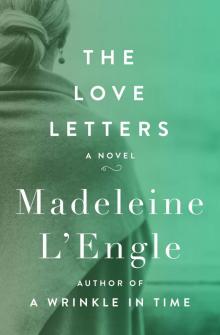 Love Letters
Love Letters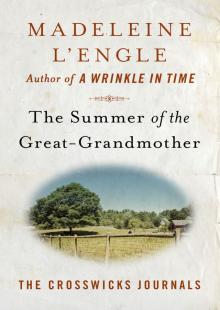 The Summer of the Great-Grandmother
The Summer of the Great-Grandmother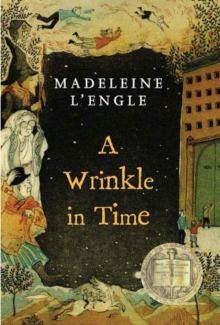 A Wrinkle in Time
A Wrinkle in Time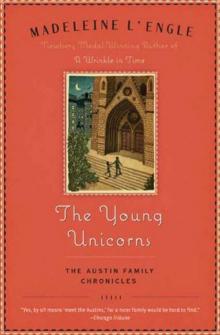 The Young Unicorns
The Young Unicorns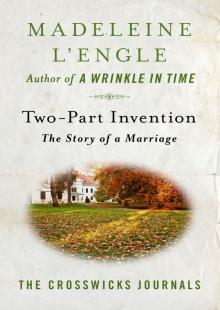 Two-Part Invention: The Story of a Marriage
Two-Part Invention: The Story of a Marriage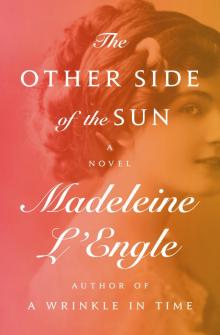 The Other Side of the Sun
The Other Side of the Sun A House Like a Lotus
A House Like a Lotus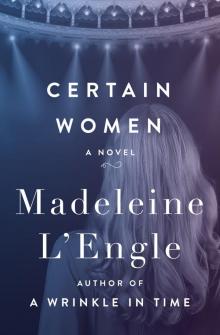 Certain Women
Certain Women Many Waters
Many Waters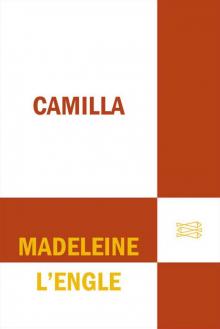 Camilla
Camilla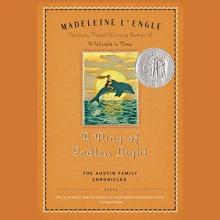 A Ring of Endless Light
A Ring of Endless Light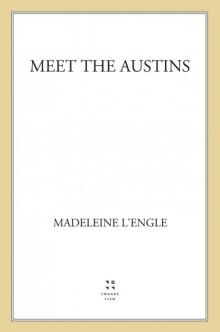 Meet the Austins
Meet the Austins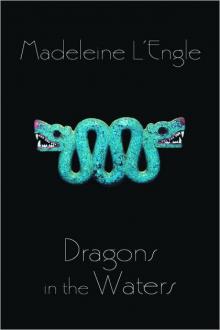 Dragons in the Waters
Dragons in the Waters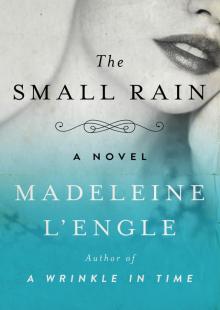 The Small Rain
The Small Rain The Moment of Tenderness
The Moment of Tenderness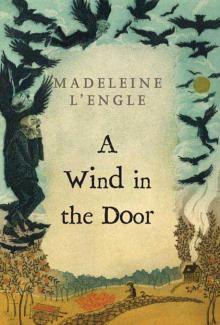 A Wind in the Door
A Wind in the Door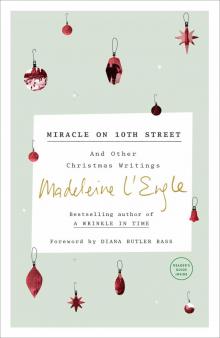 Miracle on 10th Street
Miracle on 10th Street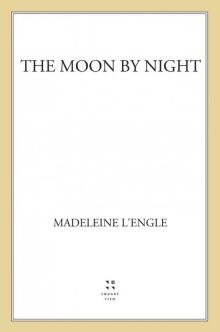 The Moon by Night
The Moon by Night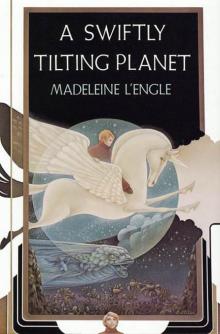 A Swiftly Tilting Planet
A Swiftly Tilting Planet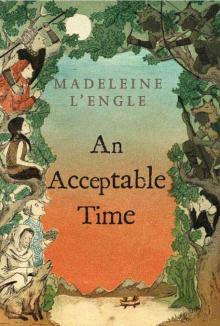 An Acceptable Time
An Acceptable Time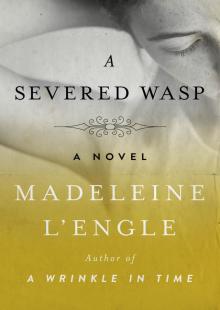 A Severed Wasp
A Severed Wasp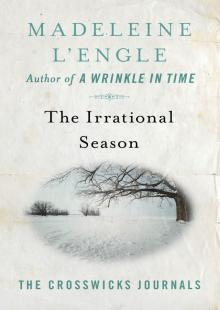 The Irrational Season
The Irrational Season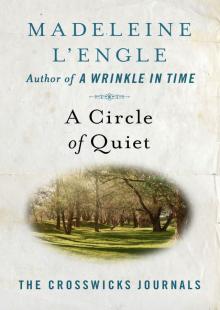 A Circle of Quiet
A Circle of Quiet A Live Coal in the Sea
A Live Coal in the Sea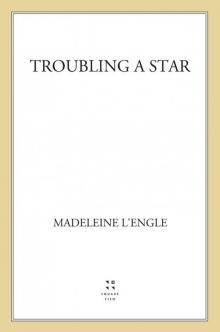 Troubling a Star
Troubling a Star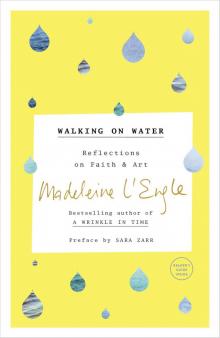 Walking on Water: Reflections on Faith and Art
Walking on Water: Reflections on Faith and Art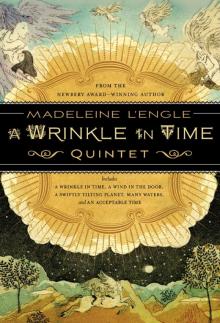 A Wrinkle in Time Quintet
A Wrinkle in Time Quintet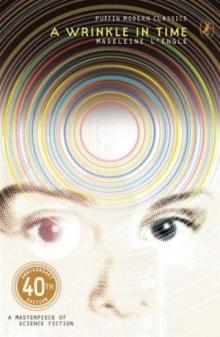 Wrinkle in Time
Wrinkle in Time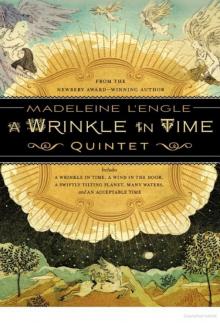 The Wrinkle in Time Quintet
The Wrinkle in Time Quintet Intergalactic P.S. 3
Intergalactic P.S. 3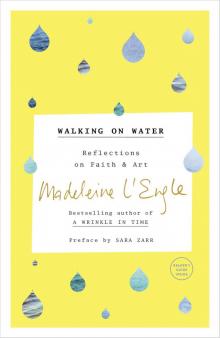 Walking on Water
Walking on Water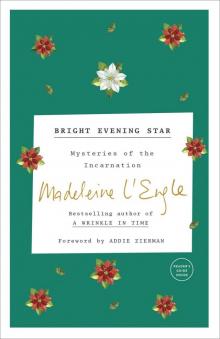 Bright Evening Star
Bright Evening Star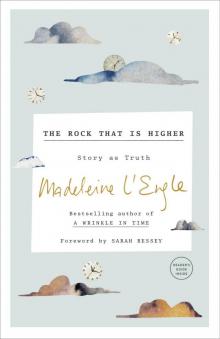 The Rock That Is Higher
The Rock That Is Higher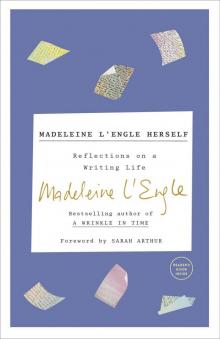 Madeleine L'Engle Herself
Madeleine L'Engle Herself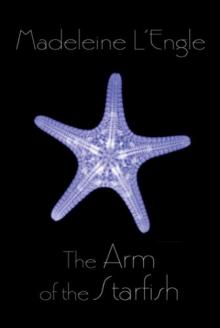 The Arm of the Starfish
The Arm of the Starfish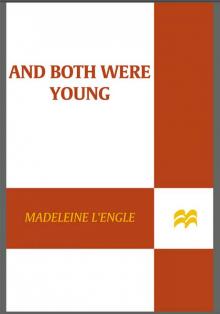 And Both Were Young
And Both Were Young The Twenty-four Days Before Christmas
The Twenty-four Days Before Christmas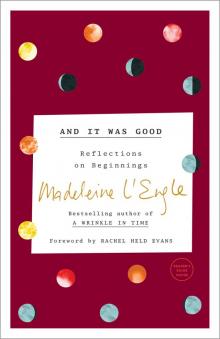 And It Was Good
And It Was Good A Stone for a Pillow
A Stone for a Pillow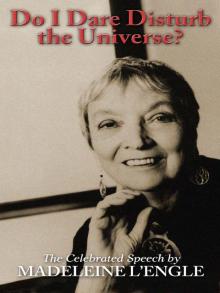 Do I Dare Disturb the Universe?
Do I Dare Disturb the Universe?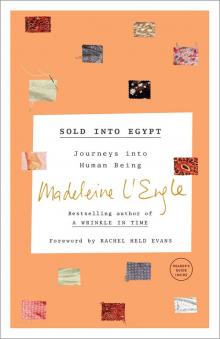 Sold into Egypt
Sold into Egypt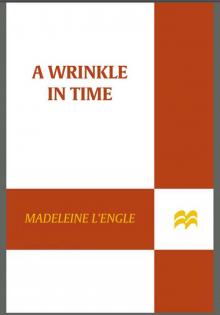 A Wrinkle in Time (Madeleine L'Engle's Time Quintet)
A Wrinkle in Time (Madeleine L'Engle's Time Quintet)